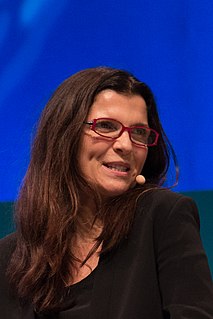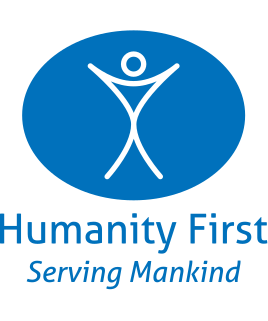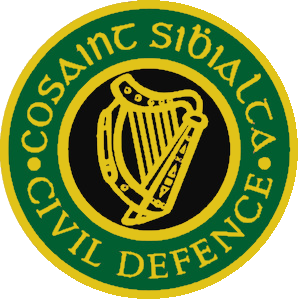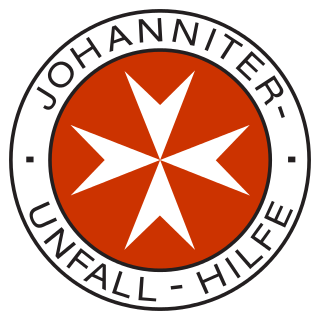
Médecins Sans Frontières, or Doctors Without Borders in English, is an international humanitarian medical non-governmental organisation (NGO) of French origin best known for its projects in conflict zones and in countries affected by endemic diseases. Main areas of work include diabetes, drug-resistant infections, HIV/AIDS, hepatitis C, tropical and neglected diseases, tuberculosis, vaccines and COVID. They contribute to patents and intellectual property subjects, as well as research and development. In 2019, the group was active in 70 countries with over 35,000 personnel mostly local doctors, nurses and other medical professionals, logistical experts, water and sanitation engineers and administrators. Private donors provide about 90% of the organisation's funding, while corporate donations provide the rest, giving MSF an annual budget of approximately US$1.63 billion.

The Directorate-General for European Civil Protection and Humanitarian Aid Operations, formerly known as the European Community Humanitarian Aid Office, is the European Commission's department for overseas humanitarian aid and for civil protection. It aims to save and preserve life, prevent and alleviate human suffering and safeguard the integrity and dignity of populations affected by natural disasters and man-made crises. Since September 2019, Janez Lenarčič is serving as Commissioner for Crisis Management in the Von der Leyen Commission.
The British Red Cross Society is the United Kingdom body of the worldwide neutral and impartial humanitarian network the International Red Cross and Red Crescent Movement. The society was formed in 1870, and is a registered charity with more than 17,200 volunteers and 3,400 staff. At the heart of their work is providing help to people in crisis, both in the UK and overseas. The Red Cross is committed to helping people without discrimination, regardless of their ethnic origin, nationality, political beliefs or religion. Queen Elizabeth II is the patron of the society.
Adi Patricia Roche is an Irish activist, anti-nuclear advocate, and campaigner for peace, humanitarian aid and education.

The Singapore Red Cross Society (SRC) is a humanitarian organisation that is part of a world-wide, non-political and non-religious International Committee of the Red Cross (ICRC), established on 30 September 1949 as part of the British Red Cross Society. It was officially incorporated by the Parliament of Singapore on 6 April 1973 and was appointed as the National Blood Donor Recruiter by the Health Sciences Authority (HSA) in 2001.
Gennady Grushevoy was a Belarusian academic, politician, human rights and environmental activist and the founder of one of the first Chernobyl relief foundations. He was awarded the 1999 Rafto Prize for “his many years of courageous work for democracy and human rights in Belarus”.

Alison Hewson is an Irish activist and businesswoman. She is the wife of singer and musician Paul Hewson, known as Bono, from the rock group U2.

Medair is an international non-governmental organisation (INGO) whose purpose is to relieve human suffering in some of the world's most remote and devastated places. Medair aims to assist people affected by natural disasters and conflict to recover with dignity through the delivery of quality humanitarian aid.
Aid Convoy is a British charitable organisation running and supporting various humanitarian aid projects, mostly in Eastern Europe. Its aims are achieved primarily by means of running convoys.

Humanity First is an international charity that provides disaster relief and long term development assistance to vulnerable communities in 52 countries across 6 continents. The organisation is run by volunteers with diverse skillsets across the world and has access to thousands of extra volunteers worldwide. Volunteer staff in all areas often pay their own expenses to support the international projects.

New Zealand Red Cross or Ripeka Whero Aotearoa is a humanitarian organisation, which has more than 15,000 members and volunteers. In New Zealand, Red Cross delivers core community services, such as Meals on Wheels, Community Transport, Refugee Services, first aid courses and emergency management operations. Internationally, New Zealand Red Cross sends aid workers overseas to assist in areas where humanitarian assistance is needed; this includes disaster preparedness and response. In 2013, 17 workers were sent to the Philippines in the aftermath of Typhoon Haiyan and in 2014, 18 New Zealand aid workers responded to the Ebola epidemic in West Africa.

Civil Defence Ireland is the national civil defence organisation of Ireland. It is a statutory agency of the Irish Department of Defence and is administered by local authorities. It was established in 1951 in response to the threat of nuclear disaster posed by the atomic bomb following World War II. Today it is an emergency response and rescue agency whose purpose is to provide aid, assistance and relief in times of emergency or natural disaster. It may also support primary emergency response agencies namely the Garda Síochána, HSE National Ambulance Service, and local authority fire services when requested. Civil Defence Ireland consists almost entirely of volunteers, numbering 4500 as of February 2019.

Humanitarian Accountability Partnership International, established in 2003, was the humanitarian sector's first international self-regulatory body. A multi-agency initiative working to improve the accountability of humanitarian action to people affected by disasters and other crises, HAP members ranged from organisations with a mandate for emergency relief and development activities to institutional donors. The organisation aimed to strengthen accountability towards those affected by crisis situations and to facilitate improved performance within the humanitarian sector. The ultimate goal of the organisation was to uphold the rights and the dignity of crisis-affected populations across the world.

Johanniter-Unfall-Hilfe e.V., commonly referred to as Die Johanniter, is a voluntary humanitarian organisation affiliated with the Brandenburg Bailiwick of the Order of St John, the German Protestant descendant of the Knights Hospitaller. The organisation was founded in 1952 in Hanover under the leadership of Rudolf Christoph Freiherr von Gersdorff. One of the main reasons for its creation was the rise in injuries and deaths from road traffic accidents. JUH participates in international aid efforts together with its sister organisations in other countries as part of the Johanniter International partnership; it also works with the German Malteser Hilfsdienst, affiliated to the Catholic Sovereign Military Order of Malta. As of 2017 the organisation had 37,000 active volunteers and youth members and around 1,300,000 registered members.
The Chernobyl Forum is the name of a group of UN agencies, founded on 3–5 February 2003 at the IAEA Headquarters in Vienna, to scientifically assess the health effects and environmental consequences of the Chernobyl accident and to issue factual, authoritative reports on its environmental and health effects.

Black Wind, White Land is a 1993 documentary film, researched and produced by the founders of the Chernobyl Children's Project International and explores the Chernobyl nuclear disaster of 1986 and its consequences for the handicapped development of the people in Belarus, Russia and Ukraine. The film was directed by Gene Kerrigan and produced by Ali Hewson, the wife of U2's singer Bono.
RADION International is a Singapore-registered Christian humanitarian relief and development non-government organisation (NGO). RADION's core work primarily focuses on long-term assistance to underprivileged and marginalized communities in Asia. RADION International, headquartered in Chiang Mai, Thailand, serves communities in critical need across northern Thailand and The Philippines. As of 2018, RADION has launched its signature child protection and developments programs to serve communities in Laos in partnership with the Ministry Of Labour and Social Welfare (MLSW), Laos PDR. RADION has also been involved in short-term projects to disaster areas, like in The Philippines during Haiyan typhoon.
Relief International is a humanitarian non-profit agency that provides emergency relief, economic rehabilitation, development assistance, and programme services to vulnerable communities worldwide. Relief International UK is non-political and non-sectarian in its mission. It is based in Washington, D.C. and in London.

The Crime and Security Branch (CSB) – previously known as C3 – is responsible for the administration of national security, counter terrorism and serious crime investigations within the Garda Síochána, the national police force of Ireland. The section oversees intelligence relating to subversive, paramilitary and terrorism matters, conducts counter-intelligence, liaises with foreign law enforcement agencies, handles confidential informants, administers VIP and witness protection, monitors potential corrupt Garda officers and provides information on threats to the state to the Garda Commissioner and Government of Ireland.
The Japan Chernobyl Foundation (JCF) is an officially-approved Japanese non-profit organization, dedicated to providing humanitarian aid, largely through medical care to children with leukemia and other illnesses. Established in 1991, the foundation initially provided medical support to Ukrainian and Belarusian victims of the Chernobyl disaster. Since the 2022 Russian invasion of Ukraine, JCF has worked with international colleagues to provide aid to Ukrainian evacuees. JCF has also been active in providing medical and humanitarian aid in Iraq since 2004, as well as in Japan in the aftermath of the 2011 Tōhoku earthquake and tsunami, and the Fukushima Daiichi nuclear disaster of 2011. The headquarters of the Japan Chernobyl Foundation are in Matsumoto, Nagano, Japan. The current JCF Chairman is Dr. Minoru Kamata.












